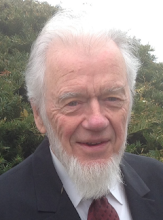Coretta Scott King died fifteen years ago today, on January 30, 2006. Thirty-five years ago, we at Seinan Gakuin University in Japan had the privilege of having Mrs. King on our campus and in our city. I am writing this in fond memory of Mrs. King.
 |
| Coretta Scott King in 2003 |
 In central Alabama on April 27, 1927, Obadiah (“Obie”) and Bernice Scott became parents of a baby girl whom they maned Coretta. Just two and a half years later the Great Depression began, and life was hard for many Americans and especially for a Black family in Alabama.
In central Alabama on April 27, 1927, Obadiah (“Obie”) and Bernice Scott became parents of a baby girl whom they maned Coretta. Just two and a half years later the Great Depression began, and life was hard for many Americans and especially for a Black family in Alabama. As a young girl, Coretta started tending the family garden, and by the age of ten she was working in the cotton fields. When she was 12, though, she enrolled as a seventh grader in Lincoln School in Marion, ten miles from home. She graduated from high school in 1945, the top student in her class.
After graduating in 1951 from Antioch College in Ohio, Coretta continued her studies at the New England Conservatory of Music in Boston.
Mrs. Martin Luther King, Jr.
 |
| The Kings in 1964 |
In the fall of 1954,
Coretta and M.L. moved to Montgomery, Alabama, where he became pastor of Dexter
Avenue Baptist Church. A year later their first child, Yolanda, was born. Three
more children were added to the King family, the last two being born in Atlanta
in 1961 and 1963.
M.L.’s involvement in the civil rights movement led to the bombing of the King home in 1956, the year between the birth of Yolanda and MLK, III.
Widow Coretta
Scott King
After years of anxiety
about what might happen to M.L. and/or to her family, her worst fears were
realized on that April 1968 evening in Memphis when MLK was fatally shot.
It was, of course, a
time of great grief for her and her family, but also for the nation, except for
the bigots and racists who had long railed against King and his clarion calls
for equality for “colored people.”
After M.L.’s assassination,
Mrs. King took on the leadership of the struggle for racial equality in the
U.S. Among other things, in 1968 she founded the Martin Luther King Jr.
Center for Nonviolent Social Change, commonly known as The King Center,” which
now hosts over one million visitors a year.
In 1985, Seinan Gakuin,
the school system that included the university where I was a full-time faculty
member, began to consider who to invite as a prominent speaker for the school’s
70th anniversary to be held in May 1986.
As a member of the planning committee, I suggested we try to get Archbishop Desmond Tutu of South
Africa to be our speaker, and some preliminary contacts were made in that regard.
But then someone came up with the idea of inviting Mrs. King. I thought that
was a brilliant suggestion.
Mrs. King accepted
our invitation. So, she came to Fukuoka City, spoke at Seinan Gakuin’s 70th
anniversary service, and also gave an address at a rented hall downtown. There
were around 4,000 people who attended that gala event.
I was also one of a
small group of Seinan people who hosted Mrs. King to a dinner one of the
evenings she was in our city, and I was impressed by what a warm, genuine
person she was.
Among the many
university students I taught, many had negative views of Christianity partly because
of the racism they knew was deeply rooted in the United States, even though it
was, they thought, a Christian nation.
Mrs. King’s talks at
Seinan Gakuin and in downtown Fukuoka City, widely covered by the press, were
warmly received, and her unassuming Christian witness was highly beneficial to those
of us serving as Christian missionaries in Japan.
So, today I am fondly
remembering Coretta Scott King and thanking God for her lifelong commitment to
peace and social justice.







